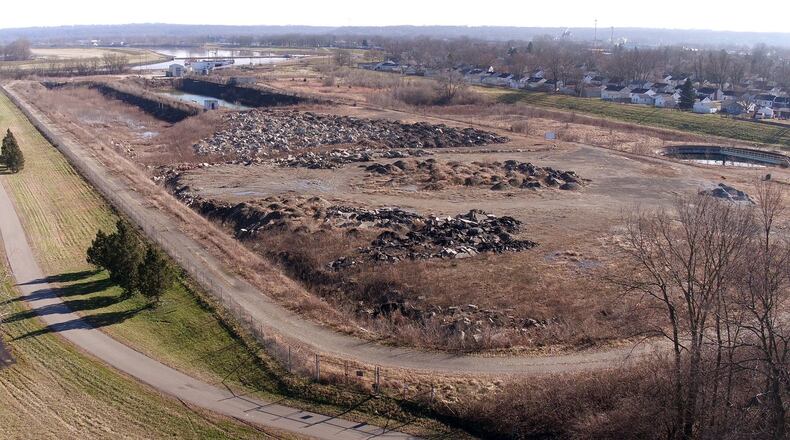The chemicals, polychlorinated biphenyls, or PCBs, are located underground at the former Appvion site, according to a release from the city. Bowen said the EPA wants the city to conduct soil sample testing to make sure none of the chemicals have spread.
“We’re pretty confident they haven’t,” Townsend said. “They’re pretty deep underground.”
The city has contracted MAKSolve, a local environmental consulting firm, to conduct sample testing starting today, according to a release. The testing will see if any offsite spread of PCBs has occurred.
John Bowen of MAKSolve said he does not expect that the chemicals have spread, and added that the firm is working closely with the EPA in the process.
PCBs can cause a wide range of health problems, according to the EPA, including cancer and reproductive issues. They have also been shown to damage the immune system, according to the EPA. The chemicals were first found on the site in 2001.
The city will pay MAKSolve $28,000 for the drilling and testing. Bowen said the EPA funding will be used to further clean and redevelop the area over several years.
The site has been plagued with environmental concerns for some time: An investigation was opened in 2016 when materials prohibited by state solid waste guidelines were found on the land.
The city spent more than $45,000 for additional cleanup and security at the site, including new gates and surveillance equipment.
Dayton area businessman Steve Rauch was indicted last November on felony charges for illegal dumping and has since pleaded not guilty. This publication previously reported that Rauch had been allowed to dump at the site when tons of illegally dumped materials were found there in 2016.
Townsend and Bowen said PCBs at the site are likely a byproduct of carbonless paper that was treated there in the 1970s.
The proposed recreational site is still the “endgame” for the site, Townsend said, but he estimated redevelopment and cleaning of the land could continue for up to five more years.
About the Author
